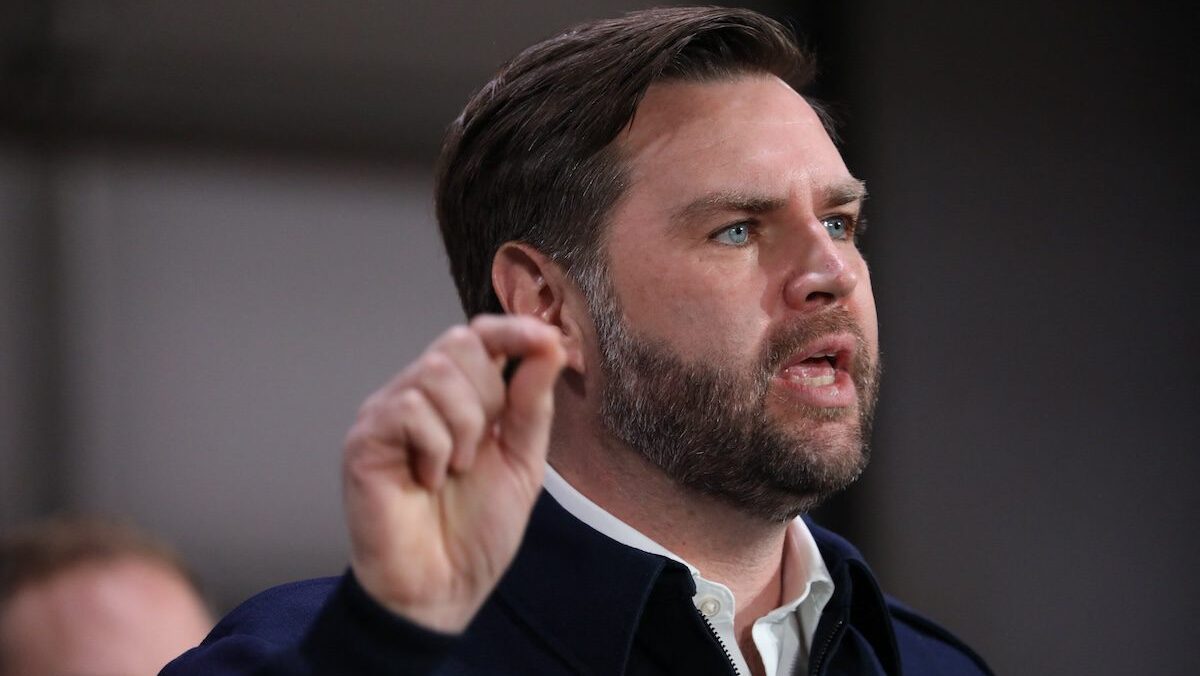
U.S. Vice President JD Vance.
Photo: Rebecca Droke / AFP
The sidelines of the ongoing AI Summit in Paris will provide the perfect setting for Vice President JD Vance to clash with Commission chief Ursula von der Leyen and other European Union executives on the bloc’s content moderation rules under its infamous Digital Services Act (DSA).
Although Vance arrived in France to deliver a keynote speech on AI—another area in which the EU has come up with the world’s first comprehensive regulatory framework, killing opportunity and competitiveness early on—the real discussion during his bilateral meetings with von der Leyen, the EU’s foreign affairs chief Kaja Kallas, and French President Emmanuel Macron will have a different focus. At the expense of innovation, they will likely concentrate more towards the DSA and the threat of free speech-oriented American platforms being slapped with enormous fines, for refusing to censor everything that Brussels deems “hate speech” or “misinformation.”
“One of the things that America’s moral leadership is going to be about during President Trump’s term is free speech,” Vance said before embarking on the trip, sending a clear message to EU leaders:
We want people to be able to speak their minds, and we believe that free and open debate is actually a good thing. Unfortunately, a lot of our European friends have gone in the wrong direction.
These remarks come as, for weeks now, the DSA has emerged as a serious point of conflict between Washington and Brussels. At the end of January, U.S. House Judiciary Chair Jim Jordan sent a letter to the EU’s tech commissioner, Henna Virkkunen, to express “serious concerns with how the DSA’s censorship provisions affect free speech in the United States.”
Jordan recognized that the content moderation rulebook only applies to Europe, but said it’s still a concern as “restrictive censorship laws like the DSA may set de facto global censorship standards” and hinder Americans’ constitutionally protected right to free speech and information.
What’s more, big tech companies that choose not to implement the censorship laws to the required extent may face fines of 6% of their annual global turnover, or even risk being temporarily blocked in the EU. Elon Musk’s X and Mark Zuckerberg’s Meta are already under infringement procedures under the DSA, and the potential fines they face are deemed by Trump an unacceptable “form of taxation” in Europe.
Virkkunen did not publicly respond to the letter, but pushed back against these accusations in the past, claiming that freedom of speech was a “fundamental value” in the EU and that Zuckerberg’s criticism that Brussels was “institutionalizing censorship” was dangerous misinformation.
However, the first instinct of the EU Commission after Meta announced that it was joining X in its free speech-oriented approach and was ditching ‘professional fact-checkers’ to implement community notes instead was to immediately double down on its censorship laws.
Last month, Virkkunen announced that she would oversee a massive upscaling of the EU’s DSA enforcement team and employ even more fact-checking NGOs to flag, assess, and remove “illegal” content around the clock. The DSA will even be complemented with a new instrument called the European Democracy Shield (EDS), which will allow NGOs to “proactively counter threats” of online foreign interference and disinformation.
The giant leftist interference network revealed by the USAID scandal should be enough for anyone to understand why the EDS and the EU’s general approach to online censorship are inherently “anti-democratic,” as Vance said before.
